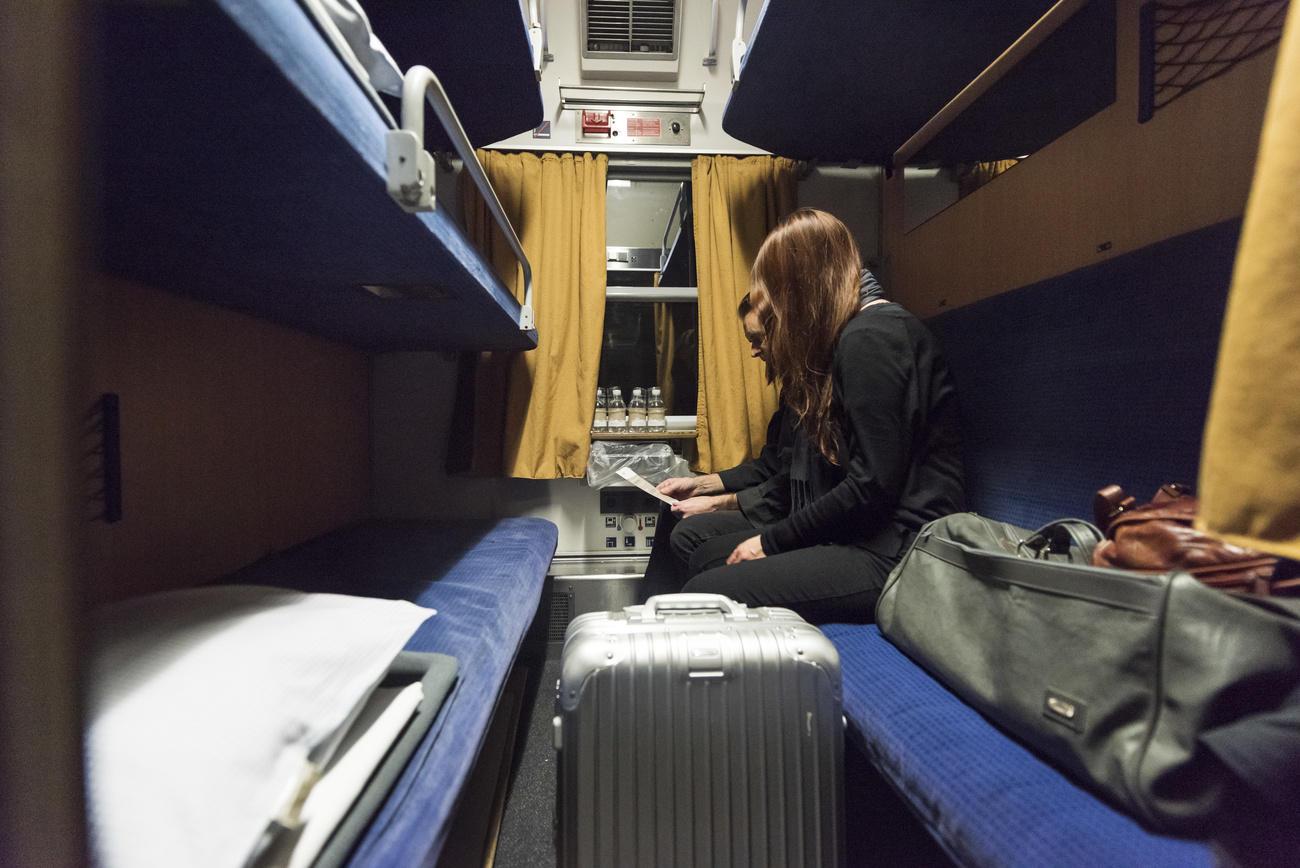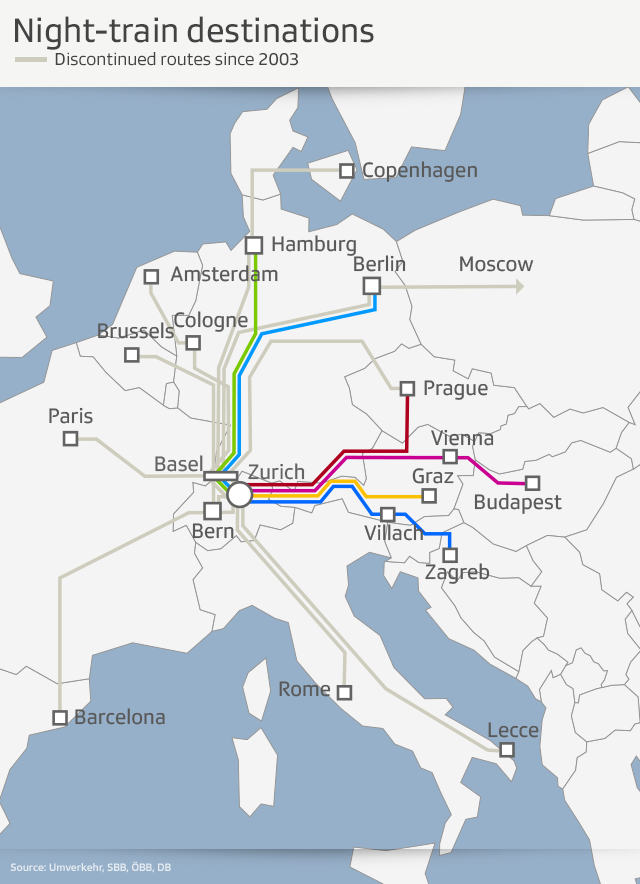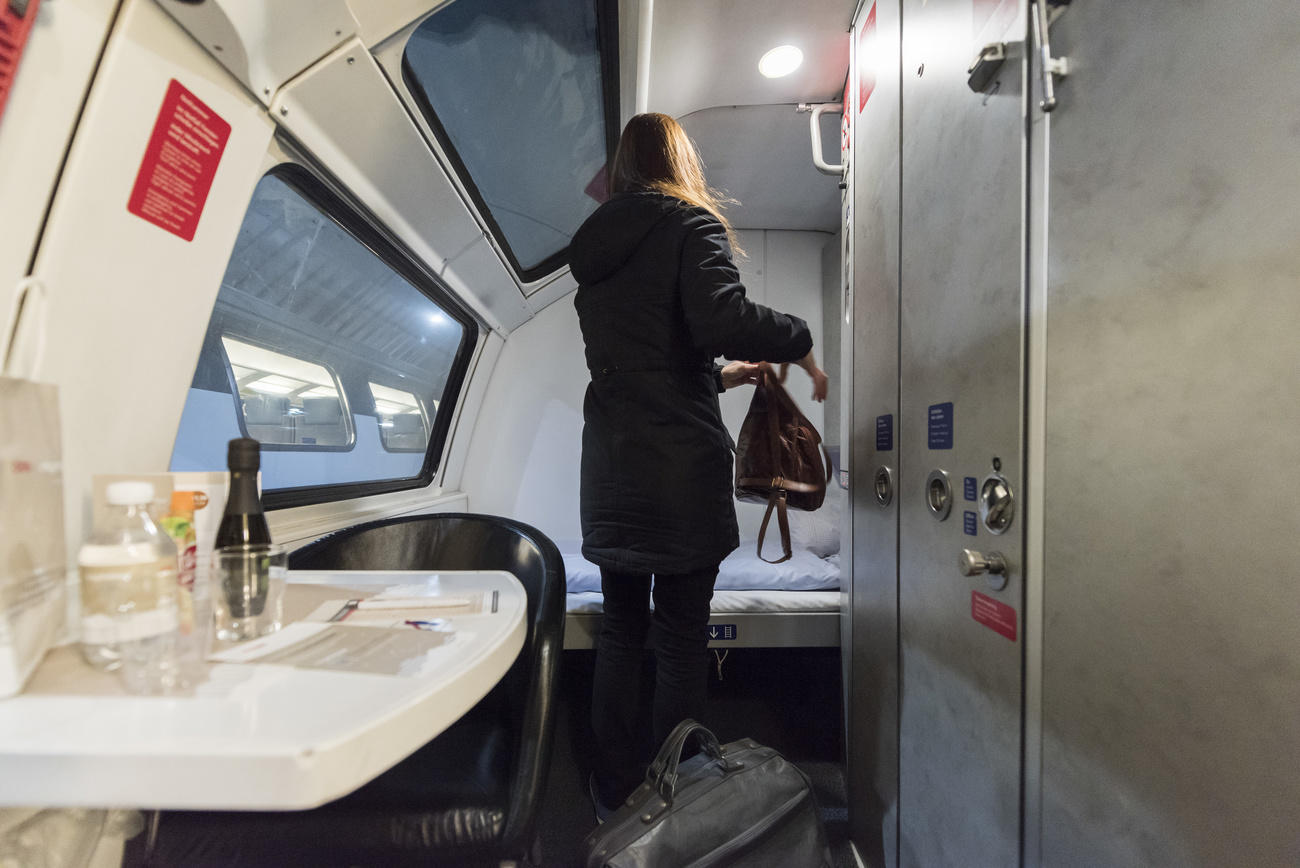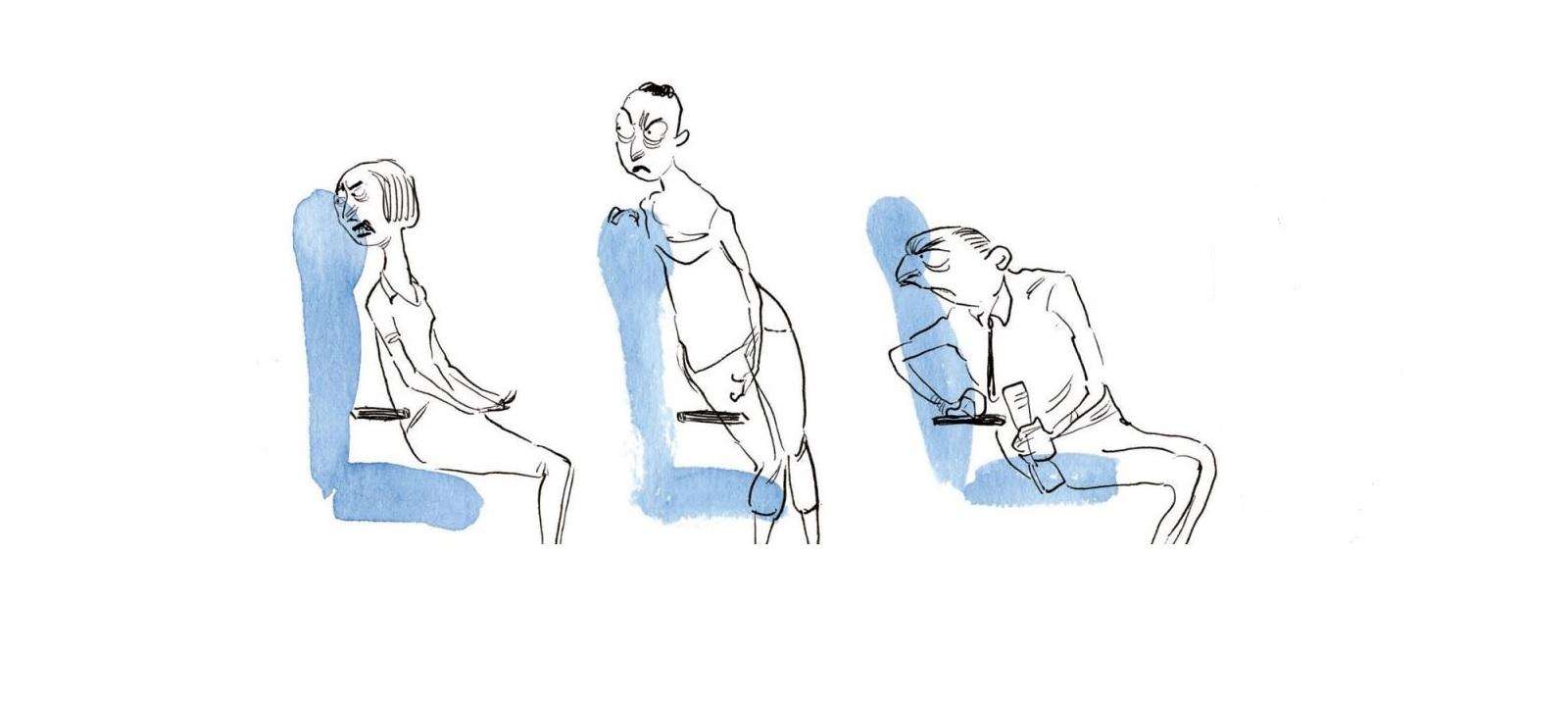
Swiss night trains: past, present and future

The Swiss Federal Railways is discussing re-investing in sleeper trains, reacting to a climate-aware public increasingly having second thoughts about flying short distances.
“We see the demand and are therefore looking into whether we can rebuild the night-train network,” Armin Weber, head of international passenger transport, recently toldExternal link Swiss public television, SRF. “We’re now examining the routes and connections.”
Expanding the night-time network would be carried out in partnership with the Austrian Federal Railways (ÖBB), he said, but new rolling stock would be needed and this would take “two to three years”.
The first sleepers left Paris for Vienna in 1872, carrying (wealthy) passengers no doubt attracted by the thought of staggering to bed after a lavish meal and waking up in another country to glorious scenery.
Night trains might have a romantic image – apart from the occasional big-screen murderExternal link – but making money from them became increasingly tough, and the arrival of budget air travel (and to a lesser extent budget hotels) was the final straw for many national train companies.
ÖBB spokesman Bernhard Rieder says although they have noticed a “commitment to night trains and environmentally friendly travel”, many people still can’t resist the appeal of flying. “As soon as budget airlines fly certain routes, demand for night trains [on those routes] drops,” he said.
The dismantling of the Swiss sleeper network began 15 years ago, and since then more and more direct overnight routes have disappeared. Previous destinations such as Brussels, Rome, Barcelona, Moscow and Copenhagen are no longer on the timetable.
In 2009 Swiss Federal Railways ended its night-train service with its own sleepers and German Railways did the same in 2016. Austrian Federal Railways took over some of the routes.
Potential routes
At present, the ÖBB NightjetExternal link covers routes in Austria, Switzerland, Germany and Italy. Daily direct services from ZurichExternal link go to Berlin, Hamburg, Vienna and Graz. Direct connections from Zurich to Prague, Budapest and Zagreb are available through Nightjet’s partner EuroNightExternal link.

On June 6 a survey found that most Swiss were interested in taking cross-border overnight train trips. When it comes to preferred destinations, 60% want night trains to Germany, 48% to Italy, 41% to Austria, 37% to France and 21% to Spain.
Ueli Stückelberger, director of the Public Transport UnionExternal link, welcomed the plans to beef up the night train offer – seeing potential in routes heading south, for example to Rome – but he told SRFExternal link that good value for money was essential.
“Good quality is part of that. It’s also clear to me that various price categories will be necessary. When I was a schoolboy, sleeping in a six-berth couchette didn’t bother me. Today, people travelling on their own have higher demands and expectations,” he said.
“The problem is that flying today is too cheap. Short-haul flights that don’t cost anything put an end to the night-train connection between Switzerland and Barcelona, another route with potential. The railways can’t offer that really cheaply.”
Cost…
But is flying really that much cheaper? A studyExternal link by price comparison portal Omio for the SonntagsZeitung newspaper looked at the mean price over six months for trips from Basel, Geneva or Zurich to Paris, Vienna, Amsterdam, Milan or Berlin. All journeys, without exception, were cheaper by train – on some stretches, for example to Milan, considerably cheaper.
In addition, train stations are generally much more central than airports, avoiding “last mile” costs such as taxis or buses. Sleeping on the train also precludes the need for a hotel room.
That said, costs for trains and planes vary considerably depending on the time of year and how far in advance you book – and no trains will be able to compete with the lowest budget flights (around CHF20 from Basel to Berlin one way).
swissinfo.ch compared prices for a one-way trip from Zurich to Vienna by night train and by plane exactly three months in advance.
A train leaves Zurich at 9:40pm and arrives in Vienna at 7:55am. There are many ticket options depending on how many people you want to share with and whether you want a sleeper or a couchetteExternal link. Prices range from CHF34 (one seat in six-seat compartment, access to wash facilities), CHF69 (one passenger in a six-person couchette, includes breakfast, access to wash facilities) up to CHF219 (one passenger in a single deluxe sleeper, includes breakfast, toiletries, towels, private basin, shower and loo). Those prices are for non-refundable tickets. It’s worth noting that night trains get booked up well in advance.
On the same day the cheapest flight from Zurich to Vienna currently costs CHF127.

…and distance
And what about time? “For distances between 300 and 500 kilometres (186 to 311 miles), trains are just as quick or quicker than planes, factoring in getting to the airport, checking in and then getting to the city centre. For distances over 500km, trains usually take longer than planes,” according to Hanspeter Guggenbühl, a journalist and author with a focus on environmental, transport and energy policies.
In an article, “The effects of switching from plane to trainExternal link”, published in May on Swiss non-profit internet newspaper Infosperber, Guggenbühl wrote that the potential for longer train journeys was “large and relevant”.
He noted that 75% of all passengers on direct flights out of Zurich land in Europe and that 57% of all passengers from Zurich land in Germany, Spain, Britain (above all London), Italy, France or Austria. The situation probably isn’t much different in Geneva and Basel, he said.
“Around a half of all air travellers who take off or land in Switzerland could reach their destination directly by train within one day or night. According to Swiss air traffic statistics, that’s roughly 30 million air travellers a year for whom switching to a train would be reasonable.”
Flygskam
Other countries jumping on the sleeper wagon include Britain, which is rebooting the Caledonian SleeperExternal link between London and Glasgow, and Sweden, whose government recently announcedExternal link it would pump money into creating night links to European destinations “to cope with the climate, build a strong society and to achieve the goal of becoming the world’s fossil-free welfare country”.
Sweden is the country not only of climate activist Greta Thunberg but also of buzzword “flygskam” (flight shame). As the Swiss-based World Economic Forum noted last weekExternal link, the rise of flygskam has coincided with passenger numbers at Swedish airports dropping 8% so far this year.

More
Flight shaming
“With the whole climate debate, international train travel has gained a greater importance. I think short-haul flights are becoming less attractive – financially and because it is frowned upon,” says Ueli Stückelberger at the Swiss Public Transport Union.
Indeed, earlier this year the University of Basel considered a proposal that students should take the train rather than fly for short-haul academic trips as a way of cutting CO2 emissions.
Hanspeter Guggenbühl says there are exceptions, but someone who switches from plane or car to train “in most cases travels more ecologically”.
Several other night-train servicesExternal link exist in Europe, but in order to maximise the potential of train travel across the continent, Guggenbühl says air travel has to become significantly more expensive – “either through a CO2 tax on kerosene or a flight ticket tax”. In addition, international rail travel must be improved, either by expanding the rail network or by making better use of what currently exists.
“What would be important and effective – and profitable given higher air travel prices – is the renaissance of night trains,” he concludes. “Because especially at night Europe still has a lot of capacity on the rails.”

More
How to behave on a Swiss train

In compliance with the JTI standards
More: SWI swissinfo.ch certified by the Journalism Trust Initiative





























You can find an overview of ongoing debates with our journalists here . Please join us!
If you want to start a conversation about a topic raised in this article or want to report factual errors, email us at english@swissinfo.ch.